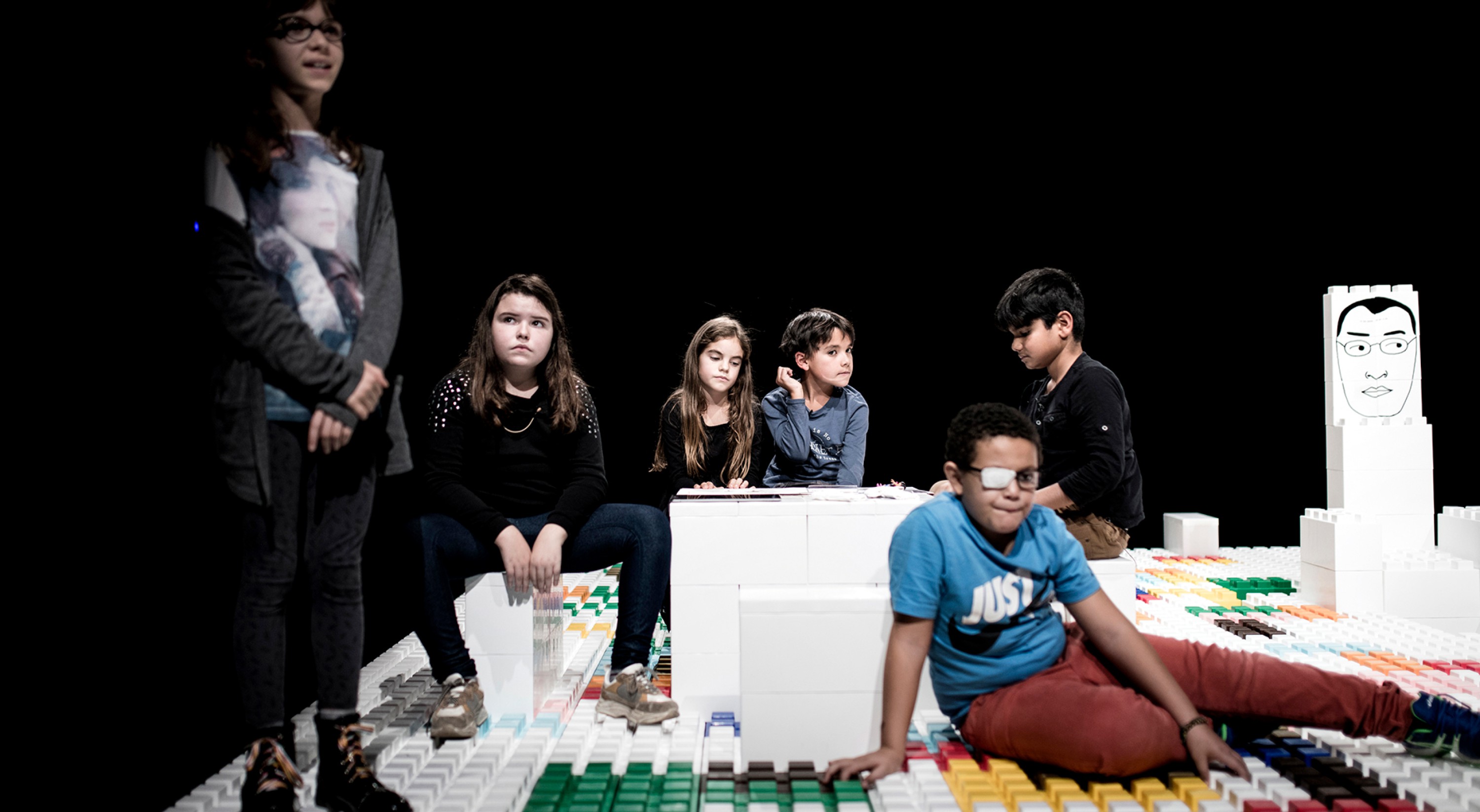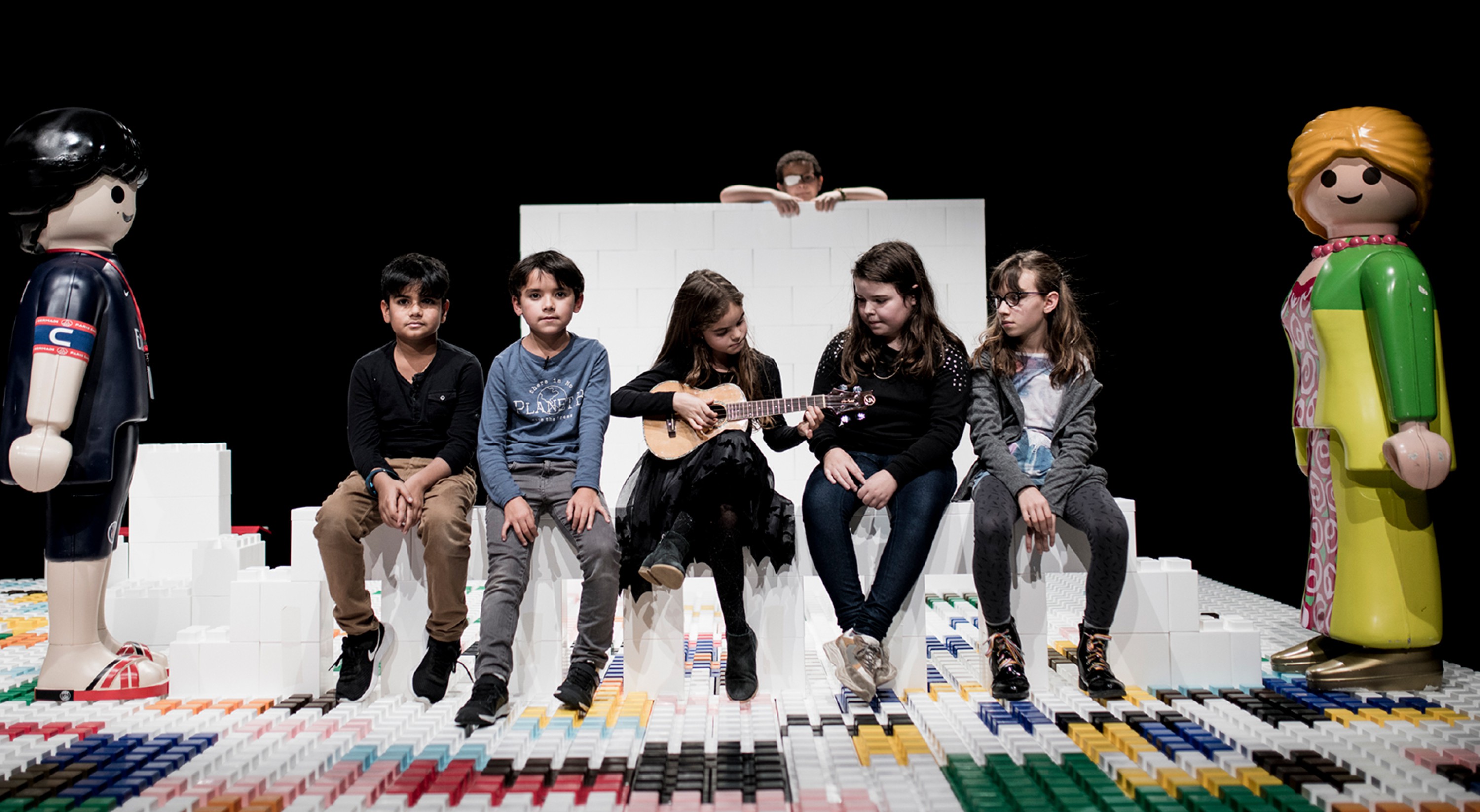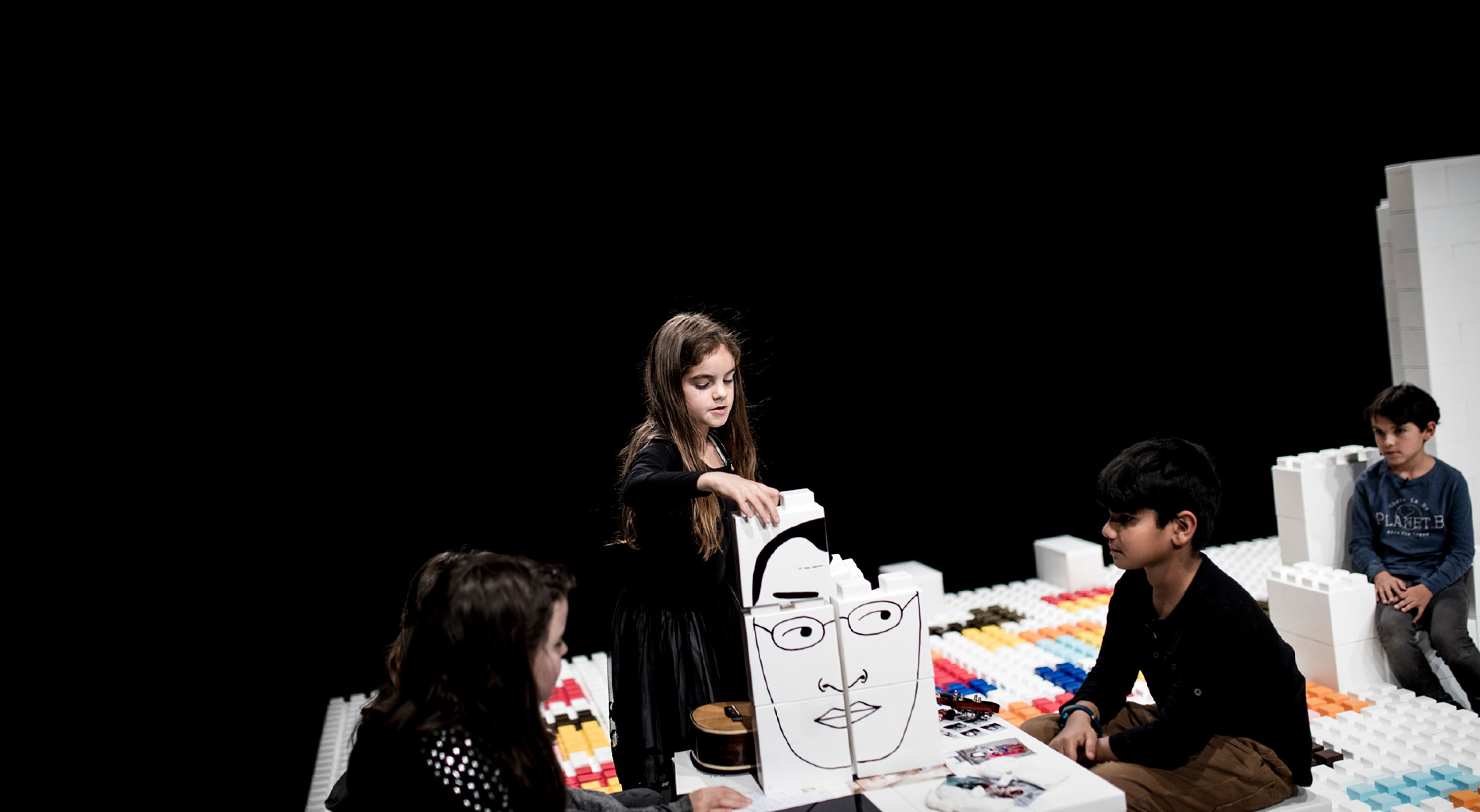Mohamed El Khatib
La Dispute
octoberoct 2 – 3
novembernov 6 – 7
novembernov 15
decemberdec 4
januaryjan 9 – 16
marchmar 19
junejun 17 – 19
Conceived and directed by Mohamed El Khatib
With Aaron, Amélie, Camille, Éloria, Ihsen, Imran, Jeanette, Maëlla, Malick, Solal, Swann (alternatively)
Artistic collaboration, Marie Desgranges
Dramaturgy, Vassia Chavaroche
Stage design and artistic collaboration, Fred Hocké
Sound, Arnaud Léger
Video and editing, Emmanuel Manzano
Production Collectif Zirlib
Coproduced by Tandem scène nationale (Arras-Douai) ; Théâtre de la Ville-Paris ; Théâtre National de Bretagne (Rennes) ; Malraux scène nationale Chambéry Savoie ; Théâtre du Beauvaisis – Scène Nationale (Beauvais) ; Théâtre de Choisy-le-Roi ; La Coursive – Scène nationale de la Rochelle ; Scène nationale d’Aubusson ; Festival d’Automne à Paris
First performed on the 8th November 2019 at Théâtre de la Ville-Paris, with Festival d’Automne à Paris
Far from any Marivaux-like literary flourishes, this production brings us words spoken in a direct, unflinching way on the subject of the marital dispute, the premonition of the break-up. Given that they are the ones best placed to talk about it – though rarely listened to – the director Mohamed El Khatib invites children of parents who have split up to take to the stage and give their own points of view.
The real has always played the leading role in the works of Mohamed El Khatib. Considering no area of investigation out of limits to him, he prefers experience to expertise, source to digression, and personal account to professional analysis. Thus, a far car away from the alarming picture painted by psychologists, jurists, and sociologists in relation to the effects of divorce on the lives of children, he met, over the course of several months, around one hundred children aged 8 years old, of different origins. Right in the middle this tearing apart, how are they affected by the decision of their parents? What words do they put to this crucial event occurring in the early stages of their lives? How do they view this breaking of a sentimental engagement that they always thought was unconditional? Did they guess it was going to happen? Had they taken sides? Caught up in the ruins of this doubling up of the family unit, how do they, themselves, rebuild their lives? What questions had they always dreamt of asking their parents? This latest fiction by Mohamed El Khatib, written through the prism of childhood, treads a delicate path between audacity and discretion, emotion and mischievousness, and offers us a unique insight into a universal subject in society.
See also
In the same place


